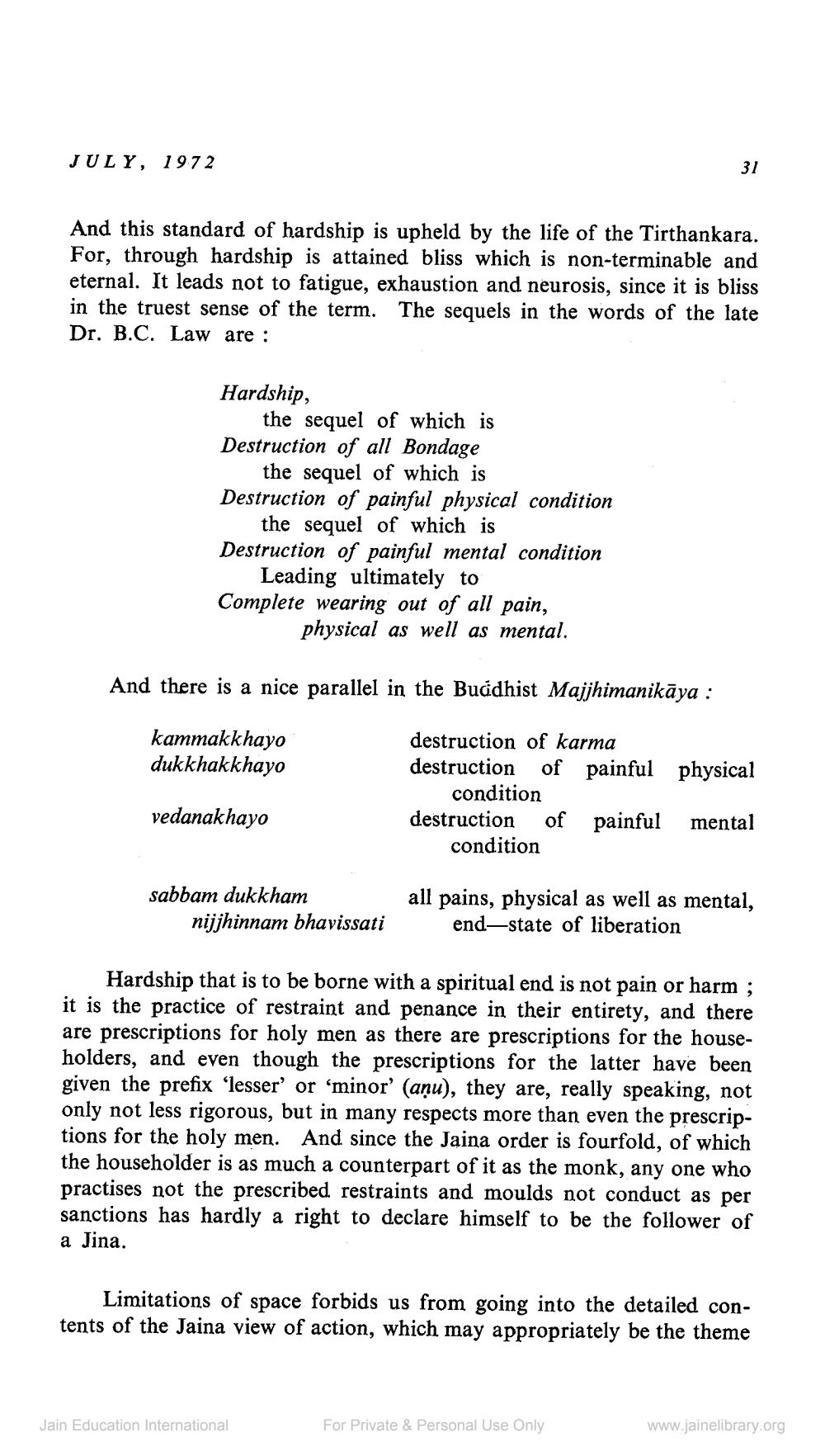________________
JULY, 1972
And this standard of hardship is upheld by the life of the Tirthankara. For, through hardship is attained bliss which is non-terminable and eternal. It leads not to fatigue, exhaustion and neurosis, since it is bliss in the truest sense of the term. The sequels in the words of the late Dr. B.C. Law are :
Hardship,
the sequel of which is Destruction of all Bondage
the sequel of which is Destruction of painful physical condition
the sequel of which is Destruction of painful mental condition
Leading ultimately to Complete wearing out of all pain,
physical as well as mental.
And there is a nice parallel in the Buddhist Majjhimanikāya :
kammakkhayo dukkhakkhayo
destruction of karma destruction of painful physical
condition destruction of painful mental
condition
vedanakhayo
sabbam dukkham
nijjhinnam bhavissati
all pains, physical as well as mental,
end-state of liberation
Hardship that is to be borne with a spiritual end is not pain or harm; it is the practice of restraint and penance in their entirety, and there are prescriptions for holy men as there are prescriptions for the householders, and even though the prescriptions for the latter have been given the prefix ‘lesser' or 'minor' (aņu), they are, really speaking, not only not less rigorous, but in many respects more than even the prescriptions for the holy men. And since the Jaina order is fourfold, of which the householder is as much a counterpart of it as the monk, any one who practises not the prescribed restraints and moulds not conduct as per sanctions has hardly a right to declare himself to be the follower of a Jina.
Limitations of space forbids us from going into the detailed contents of the Jaina view of action, which may appropriately be the theme
Jain Education International
For Private & Personal Use Only
www.jainelibrary.org




